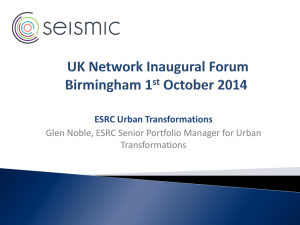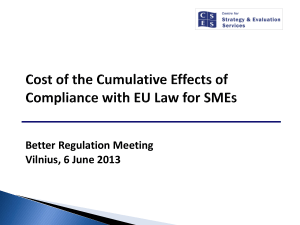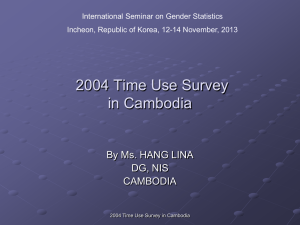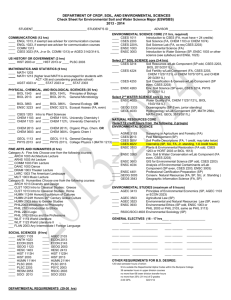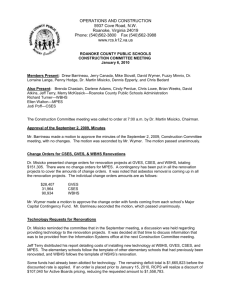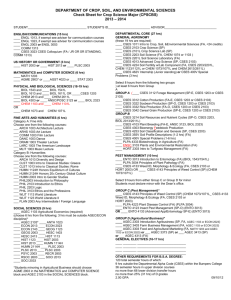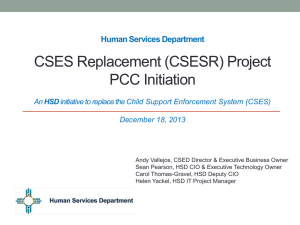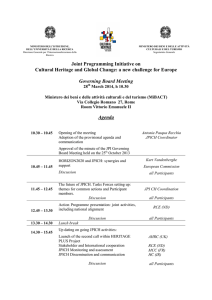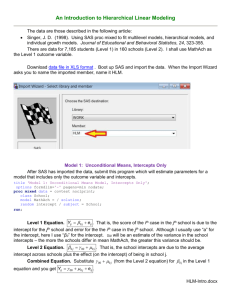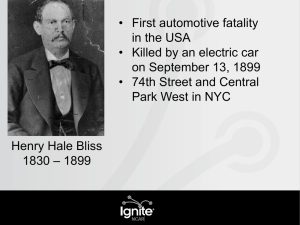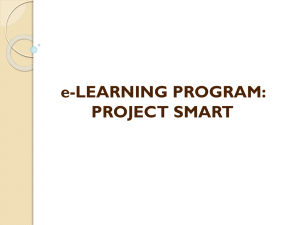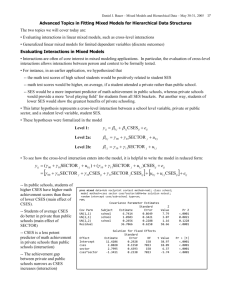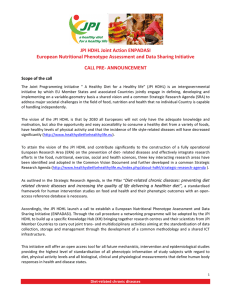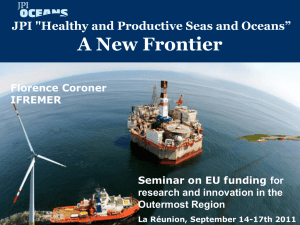PowerPoint - SEiSMiC Project
advertisement
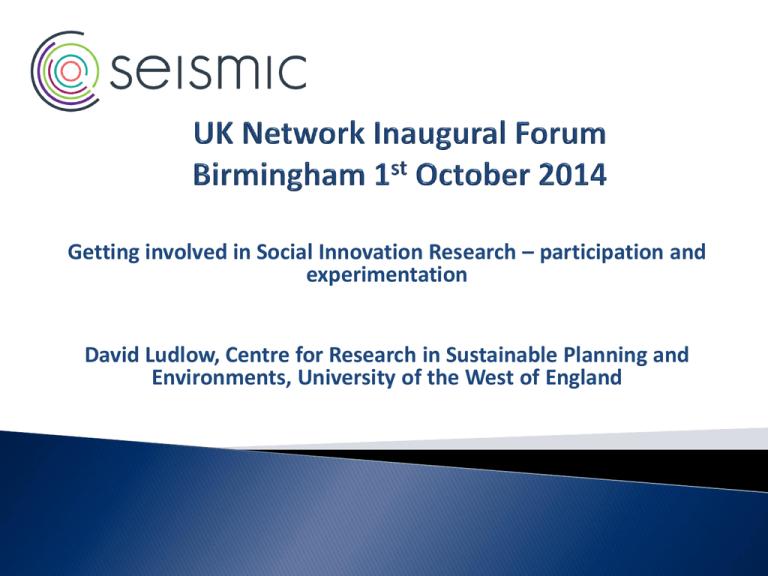
Getting involved in Social Innovation Research – participation and experimentation David Ludlow, Centre for Research in Sustainable Planning and Environments, University of the West of England Getting involved in Social Innovation Research – participation and experimentation Experimentation – new ways of conducting research and organising knowledge Lessons from parallel projects How to interact with national and EU funded research Practical steps in building partnerships Organising continuing work in this area www.cses.co.uk 2 SEISMIC helps tackle Europe’s biggest urban problems by engaging citizens, identifying social innovation needs, and contributing to future urban policies and research strategies Builds diverse networks of urban stakeholders to propose effective, widely agreed solutions. It then engages the public in creative ways, so that research learns from citizens, and citizens learn from research www.cses.co.uk 3 SEISMiC creates a platform to discuss and explore paths of integrated urban development Contributes to JPI Urban Europe by adding a social dimension to its Strategic Research and Innovation Agenda as well as making sure a wider selection of stakeholders participate in the JPI Urban Europe Forum www.cses.co.uk 4 Articulate visions for sustainable urban futures identifying key challenges in urban development and how tackled through social innovation Address governance issues and alternative ways of providing services needed in urban societies Explore relationships with formal research support (esp. Horizon 2020 & JPI Urban Europe) Assist existing key actors to promote their work and reinforce their interaction www.cses.co.uk 5 Articulate visions for sustainable urban futures identifying key challenges in urban development and how tackled through social innovation Example www.cses.co.uk Urban Nexus Project 6 Address governance issues and alternative ways of providing services needed in urban societies Integrated urban management Smart city governance Social and technology innovation Example UrbanAPI Project www.cses.co.uk 7 Explore relationships with formal research support Horizon 2020 and JPI Urban Europe www.cses.co.uk 8 INSO 1 2015 – 28 May 2015 INSO 9 2014/15 – 16 December 2014 EURO 6 2015 – 28 May 2015 Typically 3 year 5 meuro Pan-European multi-stakeholder partnerships www.cses.co.uk 9 Public administrations need to address the new challenges posed by the evolution of society The take-up of new technologies, such as social media and mobile technologies, leads to increased connectivity The availability of open data and open services, in an open government setting support the collaborative forms of service design and delivery and they increase transparency Personalised public services can arise from enabling and empowering citizens and businesses to directly participate in the design, creation, selection and delivery of some of the public services. www.cses.co.uk 10 Pressure on all public administrations to provide efficient, open and citizen-centric public services Due to the increased use of mobile technology as well as the increasing availability of public information, data and online services, public services can be transformed Coupling open public data and services with information and services offered by the private sector can lead to innovative, user-friendly and personalised services that can be accessed easily Aim is to help the interaction of citizens and businesses with public administrations – for example - combination of public and private sector services, through mobile technologies www.cses.co.uk 11 Essential to promote innovation to foster efficient, open citizen-centric public services. This innovation also addresses the challenge of social change and user needs To improve efficiency, effectiveness and quality of public services, the public sector needs to implement new processes, products, services and methods of delivery Further research, identifying the specific challenges of the public sector, such as policy domain requirements and the needs of targeted citizens or businesses is needed Requires multidisciplinary research taking into account the societal, political as well as human factors, including citizens and civil servants - where relevant involving users and citizens in the design of public services is critical www.cses.co.uk 12 JPI Urban Europe´s third call – the ERA-NET Smart Cities and Communities (ENSCC) – in cooperation with the Smart Cities Member States Initiative, will open in winter 2014/2015 Total amount of approximately 20M€ in joint public Funding provided by national and regional funding agencies from twelve European countries (Austria, Belgium, Cyprus, Finland, the Netherlands, Norway, Portugal, Romania, Spain, Sweden, Switzerland and Turkey) www.cses.co.uk 13 4 topics: Smart integrated urban energy and transport systems, Smart tools and services for integrated urban energy and transport systems, Smart big data and Smart governance and Smart citizens. Two-stage procedure will be adopted for proposals. In the first stage, consortia are invited to submit preproposals. Submission of pre-proposals - 50 pre-proposals selected - then elaborate full proposals Deadline for pre-proposals - end of March 2015. www.cses.co.uk 14
